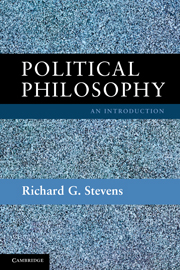Prologue
Published online by Cambridge University Press: 05 June 2012
Summary
Perhaps the greatest figure in political philosophy since the sixteenth century once remarked that thought could only be understood thinking. Among the things that might be inferred from that remark is that the proper way to study political philosophy is to read primary texts (the works of the primary figures in political philosophy) rather than secondary works (textbooks written by university professors hoping for tenure). The source of that advice said elsewhere that we are compelled to live with books but that life is so short that there is time only for the greatest books. He did not mean that lighter reading was forbidden, but only that mere textbooks should not be mistaken for the genuine texts, the works of only those who deserve to be called philosophers. First, textbooks can mislead readers into thinking that they have read philosophy. Second, textbooks can render readers’ minds numb and shut them off from philosophy once and for all. Students need to acquire, no doubt after many mistakes, a discriminating judgment as to which primary texts are to be believed and which not – which, that is to say, pass as genuine philosophic texts but are in fact only pompous obfuscations. This takes patience and perspiration. Nor did he mean that secondary works – commentaries on the primary texts – are not useful. All of us are aided in our reading of the primary texts by seeing how qualified commentators interpret them. Caution and respectful skepticism are the keys.
This book means to be guided by the foregoing advice. Its intent is limited. There are now some six billion people on the planet. There are not nearly so many authors of the “greatest books.” Perhaps only a few hundred or only several dozen may properly be called philosophers. Given the corruption of the word “philosophy” during the past two centuries, it may be difficult to credit this assertion, but the beginning student is asked to be patient. The list of authors of the primary works in political philosophy or the best of the commentaries includes Plato, Aristotle, Xenophon, Cicero, al-Farabi, Averroës, Maimonides, Aquinas, Machiavelli, Hobbes, Locke, Montesquieu, Rousseau, Kant, Hegel, Tocqueville, and Nietzsche. If you multiplied this number by six or eight, it just might be that you would have named all those who deserve the name of “political philosopher.” If you multiplied the list by a few hundred, you might include also all the first-rate commentators and those who fall in the gray area between philosopher and commentator. Why, then, can it be said that life is only long enough to read the best books? The answer is that there are easy books and hard books. Genuine works in political philosophy fall into the hard category. They have to be read with sticking care, and they have to be read over and over and over to move the reader's mind sufficiently. They also have to be read with appropriate skepticism, because they disagree with one another. Likely, some of them are closer to and some further from the truth.
- Type
- Chapter
- Information
- Political PhilosophyAn Introduction, pp. xi - xxiiPublisher: Cambridge University PressPrint publication year: 2010



